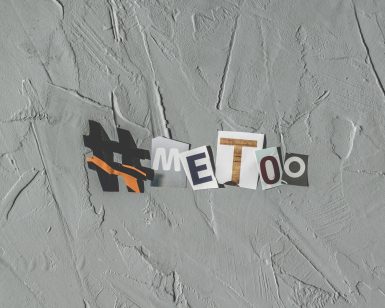Growing up, I dreamed of being a princess or a vet, possibly even the president. I never dreamed of becoming a statistic.
In 2016, however, that’s what I became when I was raped during my first year of college.
According to the Rape, Abuse and Incest National Network (RAINN), one in six women will be the victim of either an attempted or completed rape at some point in their lifetime. RAINN officials also state collegiate women, ages 18 to 24, are three times as likely to be sexually assaulted.
After it happened, I denied it over and over again. I didn’t entirely remember the incident or the person involved because I had been drinking alcohol that night. I was left dejected and confused.
I started to think that I could have said yes to him or maybe I just never said no. I began to put the blame solely on my shoulders because the person actually responsible remained a mystery.
It wasn’t until I started talking openly about that night months later with a small group of people that I was able to see the incident for what it really was — rape.
At first, the word didn’t sit well in my mouth. It felt wrong.
I thought calling my experience rape was an insult to people everywhere who had suffered far worse than I had.
I knew I wasn’t in a position to give consent that night, yet I still believed I was somehow culpable.
Negating my assault only made moving past it even more difficult. Despite supportive friends and family, it was still a very hard pill to swallow — closure evaded me and depression crept in.
I made some progress as time went on, but I mostly just ignored the event entirely, blindly believing I was moving forward in a healthy manner.
Last October, my social media networks started flooding with various people sharing their stories of sexual harassment and assault, accompanied by the hashtag “Me Too.” The trending campaign was created by social activist Tarana Burke and surfaced after several allegations of sexual misconduct were raised against Harvey Weinstein, a popular American film producer, in articles published by The New York Times and The New Yorker.
Burke’s hashtag was popularized by actress Alyssa Milano, who tweeted a photo stating, “If all the women who have been sexually harassed or assaulted wrote ‘Me too’ as a status, we might give people a sense of the magnitude of the problem,” according to a New York Times article.
According to the article, however, Burke actually started the “Me Too” movement in 2007 as a way for survivors of sexual misconduct to stand in solidarity with one another.
Milano’s tweet received over 54,000 favorites, 25,000 retweets and 68,000 responses.
When the tweet and similar others appeared on my own feed, I was instantly conflicted. I wanted to retweet it a hundred times, but I couldn’t bear to hit the button even once.
Again, my head was filled with demeaning thoughts of self-victimization and doubt. I wished so badly that I could be like these other brave people and share my own story.
Except, I never did — until now.
Initially, I wasn’t ready to let everyone in on the secret, but I have decided I owe it to myself and those going through similar situations to open up.
I don’t know if it will ever get easier to talk about, but I believe this is the first step to finding out.
#METOO
If you or someone you know has experienced a sexual assault, resources are available throughout the University of Idaho campus, such as the Women’s Center, Student Health Clinic, LGBTQA Office, the Counseling and Testing Center and more.
Individuals can also contact Alternatives to Violence of the Palouse, the Moscow Police Department and the National Sexual Assault Hotline for help.
Olivia Heersink can be reached at [email protected] or on Twitter @oliviaheersink
